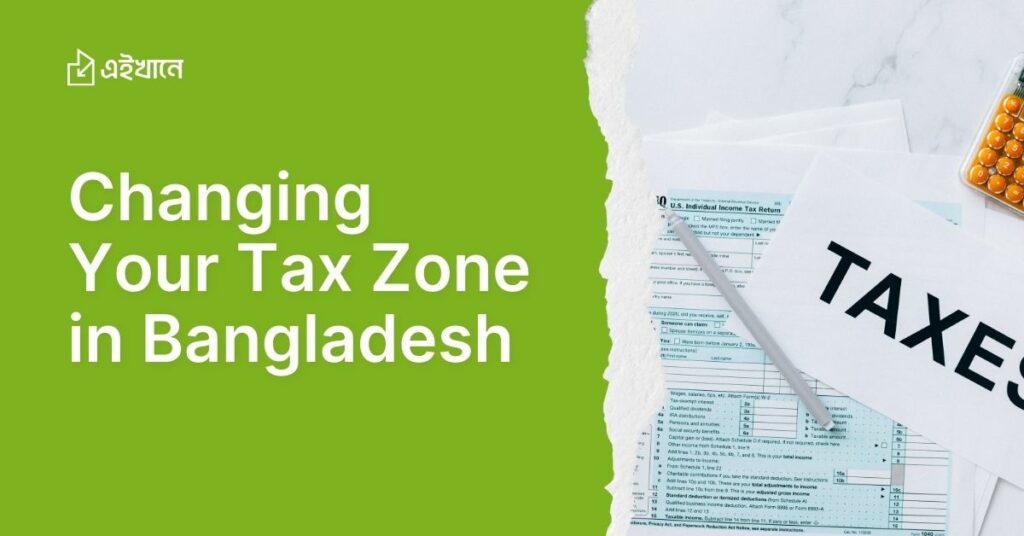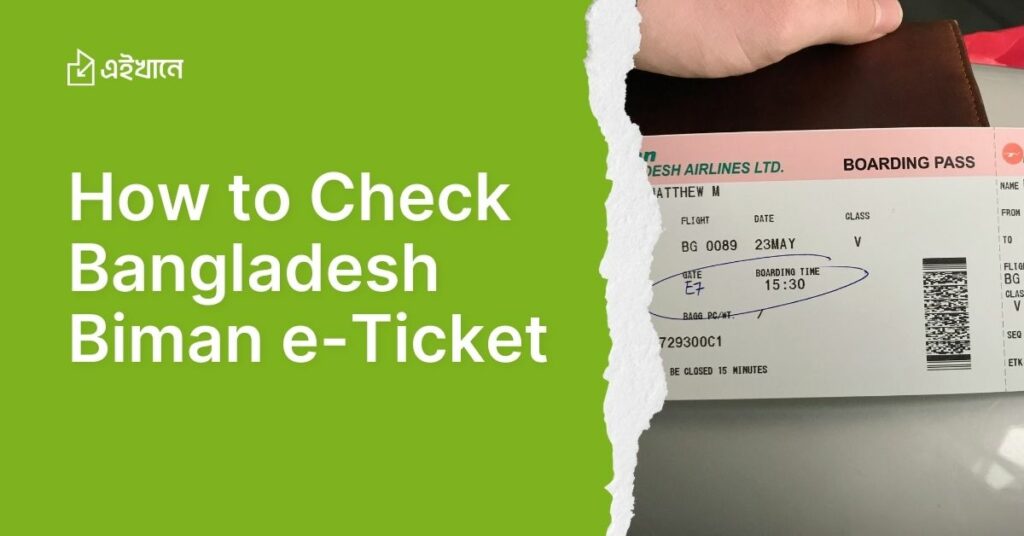How to Choose the Right Tax Zone for Your Business in Bangladesh
Understand the Types of Tax Zones
In Bangladesh, the National Board of Revenue (NBR) has divided the country into several tax zones based on geographical and economic factors. Depending on where your business is located, you will need to identify the correct tax zone because each zone oversees different areas and sectors. Understanding the types of tax zones—such as metropolitan zones, rural zones, or industry-specific zones—will help you determine the best one for your business.
Consider Your Business Location
The first and most important factor in choosing a tax zone is your business location. The NBR allocates businesses to tax zones according to their registered office address. If your business is situated in Dhaka, Chittagong, or another major city, you will likely fall under urban tax zones; whereas, businesses in less urbanized areas may be assigned to rural tax zones. Ensure that your address is correctly registered with the NBR to avoid complications.
Review Industry-Specific Tax Zones
In certain situations, specific industries like manufacturing, export, or IT services may have their own dedicated tax zones. For example, an export-based business may benefit from special tax incentives or exemptions if it operates within an Export Processing Zone (EPZ). If your business falls into one of these categories, it’s essential to verify whether industry-specific tax zones are available and advantageous for your business.
Evaluate Tax Incentives and Benefits
Some tax zones in Bangladesh offer special incentives such as tax holidays, reduced tax rates, or exemptions for businesses operating within free trade zones, high-tech parks, or EPZs. These incentives can provide cost-saving benefits, so it’s important to analyze what each zone offers before making a decision. Opting for a tax zone that provides incentives aligned with your business model can significantly lower your tax liabilities.
Consult with Experts
Choosing the right tax zone is a significant decision that affects your business’s financial and legal obligations. If you are unsure about which tax zone is appropriate for your company, it’s advisable to consult with a tax advisor or a legal expert well-versed in Bangladeshi tax laws. They can help you assess your options and guide you through the selection process to ensure compliance with local regulations.
Check Compliance Requirements
Once you’ve narrowed down the list of potential tax zones, review the compliance requirements for each. Some tax zones may impose stricter regulatory frameworks depending on industry or location. It’s crucial to ensure that your business can meet these requirements before finalizing your decision, as non-compliance could result in penalties and fines.
Monitor Changes in Tax Legislation
Tax laws and regulations in Bangladesh are subject to change, sometimes significantly altering the criteria for tax zones or the benefits they offer. Keep yourself updated on any amendments to the tax rules issued by the NBR. By staying informed, you can make proactive decisions that benefit your business in the long term.
5 Essential Documents Needed to Update Your Tax Zone Registration
1. Updated Trade License
An updated trade license is one of the key documents required when updating your tax zone registration. This document serves as proof that your business is legally registered and operational under the jurisdiction of a specific local authority. Make sure that your trade license reflects your current business location, as discrepancies here could delay the tax zone update process.
2. Business TIN Certificate
Your Taxpayer Identification Number (TIN) certificate is another essential document for updating your tax zone. Without it, the National Board of Revenue (NBR) won’t be able to verify your tax status in the system. Make sure this certificate is up-to-date, and if needed, apply for any corrections before initiating the tax zone change.
3. Bank Statement or Proof of Financial Transactions
A recent bank statement or other proof of financial transactions may be necessary to demonstrate the financial activity of your business. This is particularly important if you’re relocating to a new area or applying within a different tax jurisdiction where you need to validate your earnings and sources of income. The NBR may ask for these documents along with your tax return filings.
4. Lease Agreement or Ownership Deed
If your business has moved to a new location, whether rented or owned, you will need to provide a lease agreement or ownership deed. This document verifies the physical address of your business, which helps the NBR assign you to the correct tax zone. Ensure this document is clear and legally binding to avoid any potential issues during submission.
5. Tax Clearance Certificate
A tax clearance certificate from your previous tax zone is essential to confirm that you have no outstanding liabilities or obligations. This document certifies that all prior tax dues have been cleared, and it smoothens the process of transferring your business to a new tax jurisdiction. Without this clearance, your request for a tax zone update may be delayed or denied.
Understanding Tax Zone Classifications in Bangladesh’s Major Cities
Dhaka’s Tax Zones: A Complex Network
As the capital city of Bangladesh and its most significant business hub, Dhaka is divided into multiple tax zones, each responsible for different sectors and localities. NBR assigns these zones based on areas like Gulshan, Motijheel, or Mirpur, and the type of businesses operating there. For instance, multinational corporations or high-revenue industries may belong to more scrutinized zones with specific reporting obligations, while smaller businesses may fall under less stringent ones. Understanding which zone your business operates in is crucial to maintaining compliance.
Chittagong’s Strategic Port and Its Tax Implications
Chittagong, being home to the country’s largest port and a critical economic zone, follows a different tax model. It has several tax zones depending on whether businesses are involved in import-export activities, manufacturing, or service provision. Export Processing Zones (EPZs) and Special Economic Zones (SEZs) also exist here, offering various tax exemptions and reductions. Businesses located within these specialized zones must adhere to tax regulations that differ from those in regular commercial areas.
Tax Zones in Other Major Cities: Khulna, Sylhet, and Rajshahi
Other major cities like Khulna, Sylhet, and Rajshahi have their own tax zone classifications, primarily segmented by geographic location and industry type. For example, Sylhet, known for its remittance-based economy and agricultural exports, may have different reporting standards compared to Rajshahi, which focuses more on goods production. Businesses in these regions should work closely with the respective tax offices to understand local zone-specific requirements.
Special Considerations for EPZs and SEZs
If your business operates in an Export Processing Zone (EPZ) or Special Economic Zone (SEZ), tax obligations might be different from those of businesses in regular zones. These zones often benefit from tax holidays, import duty exemptions, and reduced rates on income and corporate taxes. While this can be financially advantageous, it’s crucial to work with tax experts to ensure adherence to the additional reporting and compliance requirements that come with operating in these zones.
Changes in Tax Zones: Migration Between Zones
In some cases, businesses may need to change their operating zones due to expansions, relocations, or a shift in the nature of their operations. For example, if you relocate your business from Dhaka to Chittagong or vice versa, this will require the proper documentation to switch your tax zone. Additionally, expanding into a new market or sector might move you to an industry-specific tax zone. When changing zones, you must update your registration with the NBR to avoid compliance issues or financial penalties.
Common Mistakes to Avoid When Switching Tax Zones in Bangladesh
Not Updating Your Business Address with the NBR
One of the most common mistakes businesses make when switching tax zones is failing to update their registered business address with the National Board of Revenue (NBR). If your business has moved to a new location but you haven’t officially updated your address, the NBR may continue to associate you with your old tax zone, leading to potential compliance issues. It’s essential to ensure that your trade license and TIN certificates reflect your new address before you initiate the tax zone switch. A mismatch between records can result in delays and penalties.
Ignoring Tax Clearance Requirements
When moving from one tax zone to another, many businesses forget to obtain a tax clearance certificate from their previous zone. This document proves that you have settled all outstanding tax liabilities and ensures a smooth transition into your new jurisdiction. Failing to secure this certificate may slow down the process or even trigger audits, as the NBR needs assurance that you’re free of any obligations related to your former tax zone. Always prioritize obtaining this certificate early to avoid complications.
Mistiming the Transition During Tax Season
Another critical error is attempting to switch tax zones during high-pressure times like tax filing seasons. The NBR and associated departments may be overwhelmed with handling tax returns, making it more difficult to get timely approvals for your tax zone transfer. Filing during these peak times can also delay your submissions, leading to possible financial liabilities or penalties. It’s advisable to plan your move well before or after the tax season to ensure smoother processing.
Overlooking Industry-Specific Tax Zone Benefits
Some businesses overlook potential benefits by not researching whether they qualify for industry-specific tax zones. For instance, if your company operates in manufacturing or export, you might be eligible for significant tax holidays or exemptions in special economic zones (SEZs) or export processing zones (EPZs). Failing to explore these options could cost your business in the long term. Be sure to check whether transitioning to an SEZ or EPZ could offer advantages before finalizing your new tax zone.
Failing to Consult Tax or Legal Experts
Switching tax zones involves navigating complex regulations, and many businesses make the mistake of doing it without expert guidance. Misinterpretations of the rules can lead to costly errors, such as missing key deadlines or providing incorrect documentation. Consulting with a qualified tax advisor or legal expert who understands Bangladeshi tax law is crucial. They can help you manage the transition process efficiently, ensuring all paperwork is correct and timely filed.
Not Being Aware of Updated Compliance Requirements
Each tax zone in Bangladesh may have its own unique compliance requirements, especially regarding tax filings, periodic reporting, and applicable tax rates. When switching zones, businesses often make the mistake of assuming that all zones have similar rules. This can result in non-compliance and attract penalties. It’s important to thoroughly review the regulations for your new zone and update your internal processes accordingly to ensure compliance from day one.
Delaying Bank and Financial Record Updates
A common oversight is delaying the update of bank statements, lease agreements, or other financial records to reflect the new business location. These documents are often required by the NBR to validate the legitimacy of your tax zone change request. Any delay in getting your financial records in order can complicate the transfer process. Ensure that all relevant financial documentation is up-to-date and accurate before submitting your tax zone change application to avoid unnecessary hold-ups.
Tax Zone Transfer Process: Timeline and Requirements Explained
Step 1: Submission of Required Documents
The first step in transferring your tax zone involves submitting the necessary paperwork to the National Board of Revenue (NBR). Ensure that you have all required documents such as an updated Trade License, Business TIN Certificate, Lease Agreement or Ownership Deed, and a Tax Clearance Certificate from your previous zone. Once these documents are prepared, submit them either through the NBR portal or in person at the relevant NBR office. This submission initiates the formal request for your tax zone transfer.
Step 2: Tax Clearance from Previous Zone
Before your application can proceed, you must obtain a tax clearance certificate from your existing tax zone. This document certifies that all outstanding taxes have been settled up to the date of your request. Without this clearance, your application for a new tax zone cannot move forward. The tax clearance process typically takes about one to two weeks, depending on the workload of the relevant tax office and the complexity of your tax history.
Step 3: Verification and Processing by NBR
Once you have submitted all the necessary documents and obtained your tax clearance, the NBR will begin verifying your information. This includes cross-referencing your submitted documents with their internal records, ensuring compliance with tax obligations, and confirming the legitimacy of your business location change. Depending on the complexity of your case, this step can take anywhere from two to four weeks. Delays can occur if discrepancies are found, so it’s essential that all paperwork is accurate.
Step 4: Approval and Issuance of New Tax Zone Assignment
After the successful verification of your documents and tax history, the NBR will assign your business to its new tax zone. You will receive official notification, either digitally via the NBR’s online platform or through postal mail. This notification will include your new tax zone details and updated tax obligations. It’s important to keep this document safe for future reference. The entire approval process after submission typically takes another one to two weeks, concluding the transfer in approximately six to eight weeks overall.
Step 5: Updating Your Records and Ongoing Compliance
After receiving notification of your new tax zone allocation, you must update all relevant business records, including your trade license, financial accounts, and any other official documents. Additionally, it is your responsibility to ensure that all future tax filings and payments adhere to the regulations and rates specific to your new tax zone. Failure to comply with your new tax zone’s requirements could result in fines or penalties, so it’s crucial to stay informed of your new obligations.
Expedited Transfer Options
In some urgent cases, businesses may need to expedite the tax zone transfer process. While the standard timeline can take up to two months, expedited services may be available for an additional fee or through third-party intermediaries. These services typically require more direct communication with NBR officials and faster document processing but do not guarantee immediate results. Consulting with a tax advisor can help determine if an expedited process is appropriate for your situation.


